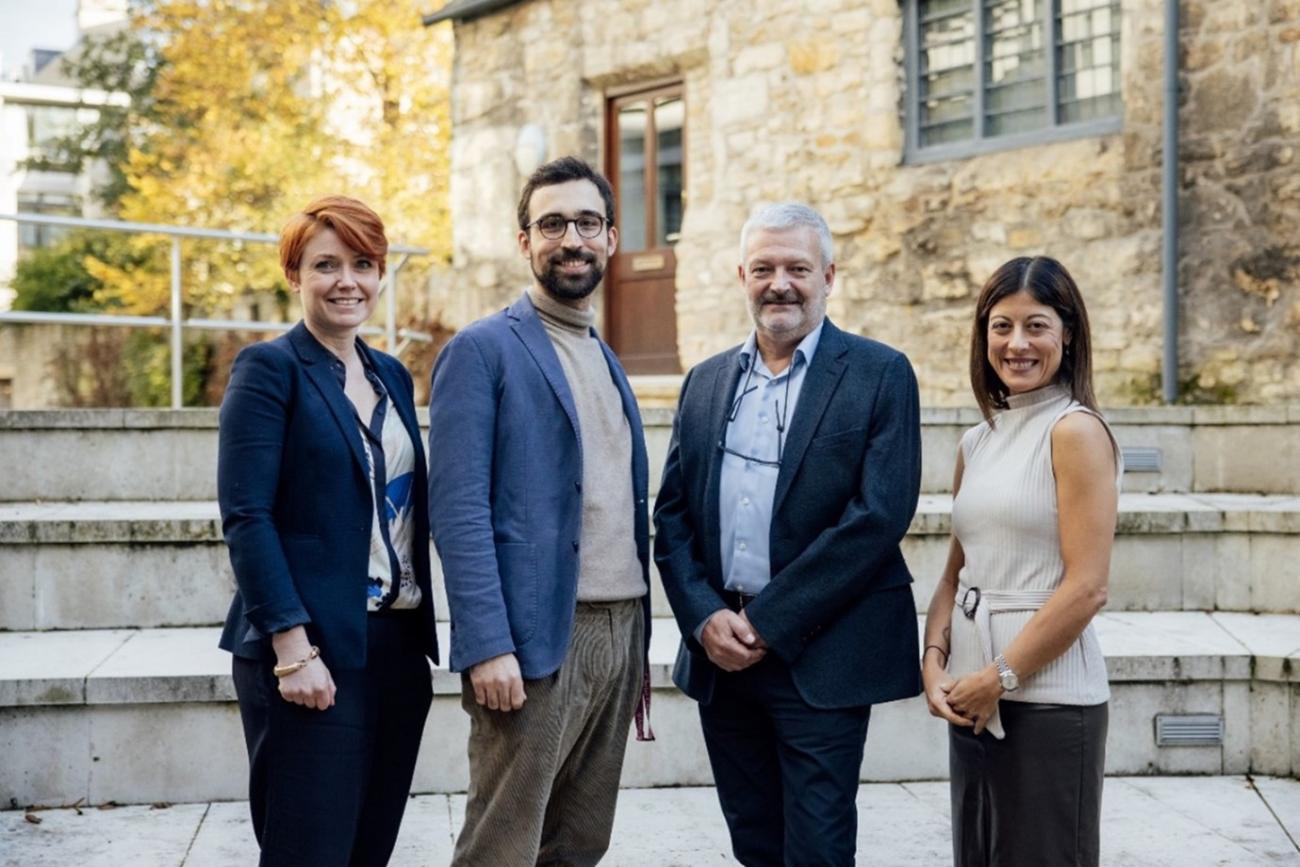How do we align economic systems with environmental sustainability while addressing pressing societal concerns?
Dr Nicola Ranger at the Environmental Change Institute helped lead a discussion dissecting the barriers to climate progress, exploring carbon taxes, subsidy reforms, and the role of finance in driving sustainable economic growth globally.
Dr Ranger, Director of the Global Finance and Economy Group at the Environmental Change Institute and of the Resilient Planet Finance Lab, joined David Barrett the CEO of EBC Financial Group and colleagues from the University of Oxford’s Department of Economics, Associate Professor Andrea Chiavari and Associate Professor Banu Demir Pakel.
The event, “Macroeconomics and Climate” was part of the series “What Economists Really Do?”. At the core of the discussions was the recognition that financial and environmental security are universally shared concerns.
The panel discussion explored the complex interplay between economic growth and climate resilience. Dr Ranger highlighted the economic opportunities that can emerge from climate action, stating: “This is not just about costs, it’s about opportunities.”

David Barrett, CEO of EBC Financial Group (UK) Ltd, and Dr Nicola Ranger, Director of the Global Finance Group of the Environmental Change Institute and Senior Research Fellow
Highlighting the potential to create jobs and stimulate economic growth while addressing climate risks, Dr Ranger also stressed the importance of reshaping public narratives. She underscored that effective climate action can foster innovation and progress without imposing a significant financial burden. She also advocates for redirecting fossil fuel and other environmentally damaging subsidies, which globally amount to up to $7 trillion annually, towards green investments, such as renewable energy.
The panel all agreed that we need to change the narrative around financial and environmental security and there needs to be a positive transition. Dr Ranger reflected on the current challenges in climate action, echoing that a significant part of the problem lies in awareness: “At the moment, something is going wrong, and I think a lot of that is about the awareness side.
“Governments play a role, but the government fundamentally does what the public will vote for. And a lack of awareness of the immediate benefits of a green energy transition—for energy security and public health—is a key problem at the moment.”
Dr Ranger criticised that the narrative surrounding climate change has failed in recent years by framing it as a costly and burdensome challenge: “Particularly the narrative is this is going to cost a lot of money to deal with. I don’t agree with that view, and it is not supported by the evidence. You know, we have to make hard decisions, but what we know is that right now the way we are approaching this is making it harder—specifically, a lack of certainty from government on its policies stalls investment and increases the costs. All the evidence shows that if we get the right policies in place and set a clear path for investors, a just transition is both the lowest cost and more beneficial pathway.”

L-R: Dr Nicola Ranger, Director of the Global Finance Group of the Environmental Change Institute and Senior Research Fellow; Associate Professor Andrea Chiavari, Department of Economics, University of Oxford; David Barrett, CEO of EBC Financial Group (UK) Ltd, and Associate Professor Banu Demir Pakel, Department of Economics, University of Oxford
Pointing to fossil fuel subsidies, she highlighted how their redirection could catalyse a positive transition: “Globally, we pump so much money into fossil fuel subsidies—estimates range from five to seven trillion dollars a year. If you stopped that and put it into clean technologies, we would have solved the problem.”
To address this, Dr Ranger called for a shift in public discourse to emphasise the economic opportunities inherent in climate action. She stressed the role of academics and experts in reshaping the narrative, saying: “We need to make sure people understand this is a positive transition. Through good government policy, the impact on individuals will not be significant and would actually boost job growth and innovation.”
Dr Ranger concluded by urging governments to take the lead in changing this narrative: “What I’d really like to see is governments getting behind this and saying, ‘Look, this is what’s going to happen. It’s going to benefit you. Here is the pathway. This is what both investors and the public need.’”
Read more about the panel discussion and all the topics discussed.
Watch the event on YouTube.

